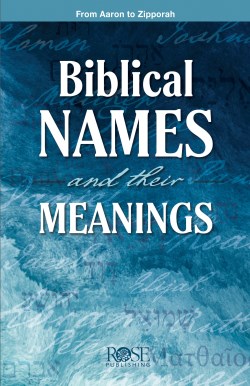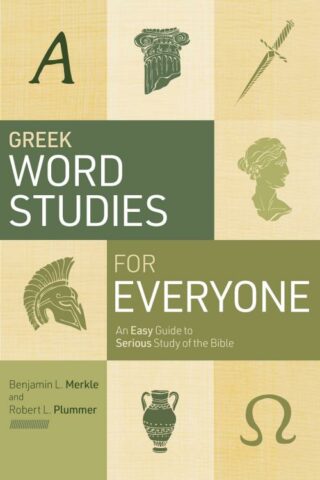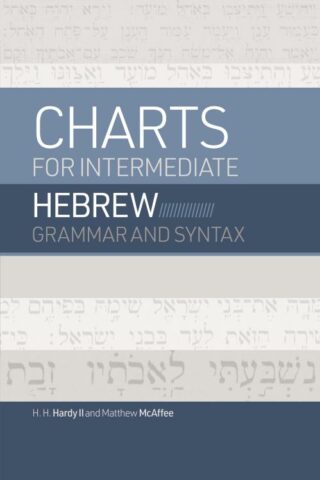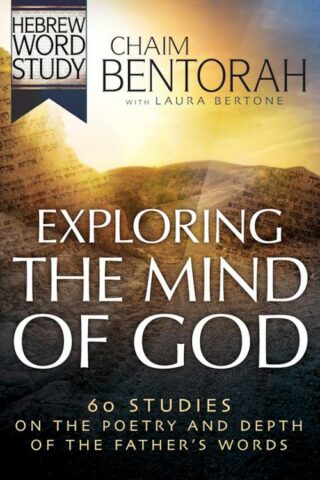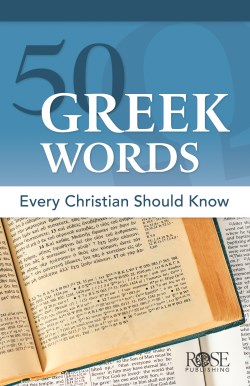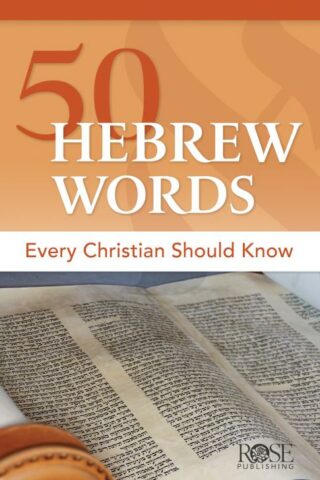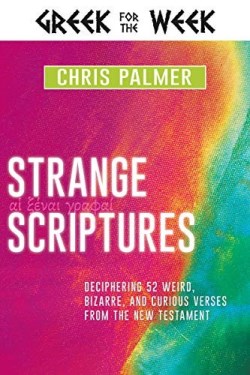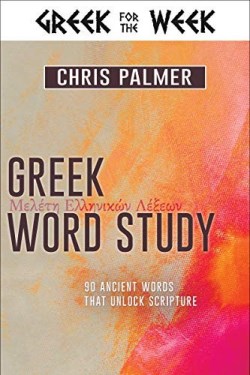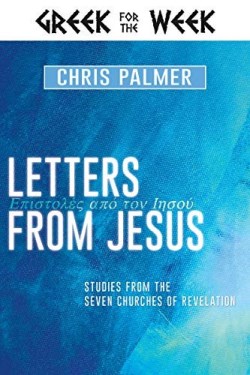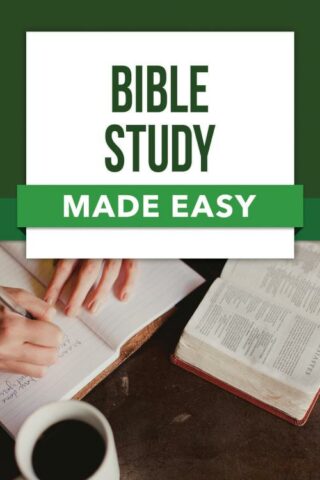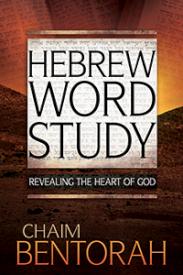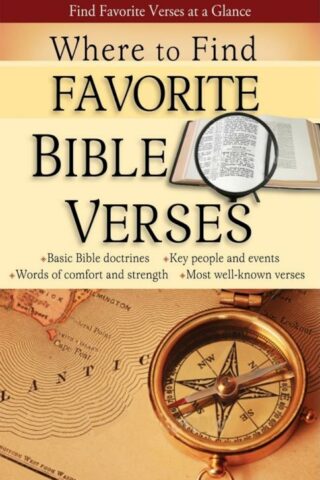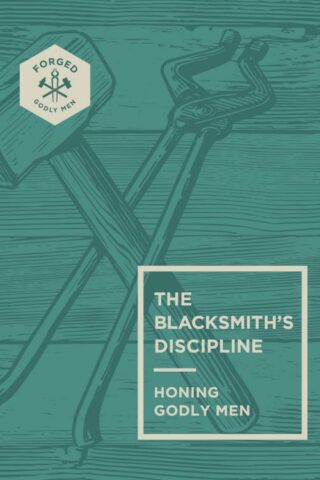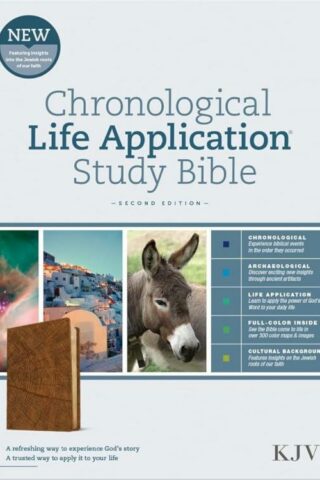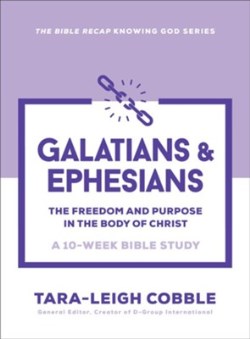Bible Language Tools
Showing all 13 resultsSorted by latest
-
Biblical Names And Their Meanings
$4.99Did you know the Bible contains more than 3,000 names, including names of God, people, places, and nations or people groups? That’s a lot of names! Often a person’s name describes their characteristics. For example, the name Esau sounds like a Hebrew word meaning “hair” or “hairy.” Other times, a person’s name may describe circumstances surrounding their birth or hopes for their destiny.
Bibles sometimes have footnotes indicating the meaning of names, but what if you could access a comprehensive list of this information at your fingertips? Rose Publishing’s newest reference pamphlet, Biblical Names and Their Meanings, offers exactly that. Covering the Old and New Testaments, readers will enjoy learning the meaning and significance of 100 biblical names. Each entry includes the name in the original biblical language, the meaning, the pronunciation, a short description, and Scripture references. Sample entry:
Jacob
??????? (yah-ak-ove’)
Gen. 25:26“He grabs by the heel.” Jacob was born grasping his twin brother Esau’s heel. Taken in a nonliteral sense, this phrase means “supplanter” or “deceiver.” This description fits Jacob’s actions later in his life.
Add to cart4 in stock
-
Greek Word Studies For Everyone
$19.99Unlock the treasures of Greek word studies with this comprehensive guide!
Designed for both laypersons hungry for in-depth biblical knowledge and Christian ministers seeking to refresh and enrich their Greek understanding, Greek Word Studies for Everyone: An Easy Guide to Serious Study of the Bible provides a clear pathway through the complexities of Greek word analysis.
In no time, readers will master the essentials of reading Greek words, learn how to utilize word studies, and decipher between study tools. Whether you’re studying solo or in a group setting, this 7-week church-based course format ensures steady progress. Packed with practice exercises and accompanied by free video lessons at wordstudiesforeveryone.com, Greek Word Studies for Everyone equips you to engage with the biblical text at the next level. Take the next step in your biblical studies journey today!
Add to cart1 in stock
-
Charts For Intermediate Hebrew Grammar And Syntax
$11.99For students of intermediate Hebrew, these fold-out laminated sheets provide a quick and helpful reference to paradigms, syntax functions, and more. Designed to accompany Going Deeper with Biblical Hebrew, these sheets contain:
*Summaries, definitions, and key takeaways for each chapter of the textbook.
*Helpful breakdowns of syntactical categorizations and functions.
*Grammatical charts for nouns, verbs, and other parts of speech.The premier “cheat sheet” for upper-level Hebrew, Charts for Intermediate Hebrew Grammar and Syntax provides at-a-glance reference materials for students as they dive deeper into biblical Hebrew.
Add to cart1 in stock
-
Exploring The Mind Of God
$25.00God’s Thoughts Toward You Are Filled with Love
Exploring the Mind of God reveals the thoughts and plans of our Creator-Father as revealed in the deeper meanings of Hebrew words in Scripture, with reflections on related Greek and Aramaic terms as well.
Hebrew teacher Chaim Bentorah highlights both Old and New Testament passages that reveal the loving nature of God, as opposed to the vindictive nature that is commonly portrayed.
Chaim says, “The foremost thought that expresses the mind of God toward humanity is His love for us in Christ Jesus.”
Each of the sixty devotional readings features a specific passage of Scripture, followed by an investigation of key words in the original languages, all pointing to the eternal purposes of our loving heavenly Father. Use as an inspiring daily devotional that will draw you closer to the Lord, a deeper word study into biblical Hebrew, or both.
You don’t even have to be familiar with a word of Hebrew to be greatly blessed by these insights. Chaim opens up the biblical passages while ultimately pointing us to enter more fully into a loving relationship with our Lord.
Add to cartin stock within 3-5 days of online purchase
-
50 Greek Words Every Christian Should Know
$4.9950 Greek Words Every Christian Should Know is an easy-to-understand, practical quick-reference pamphlet that will immediately refresh your Bible study, covering the basics of common biblical Greek words, definitions, and more! Here’s a sample of this amazing reference pamphlet:
Word: Apokalupsis
*Pronunciation: ah-paw-KAH-loop-sis
*Scripture: 1 Peter 1:13 “Set your hope on the grace to be brought to you when Jesus Christ is revealed at his coming.”
*Definition: revelation, disclosure, apocalypse
*Insights: The English word apocalypse is a rendering of apokalupsis, the title of the book of Revelation. Since Jesus’s return is associated with the end of the world, apocalypse evokes thoughts of worldwide disasters. However, the Greek word simply means “a revealing.” Jesus’s return is the time when he will be revealed.
Unpack Rich Biblical Greek Words, Definitions, and Meanings in Seconds
Diving into biblical Greek doesn’t have to be difficult or intimidating! In fact, learning basic Greek is both easy and fun with Rose’s 50 Greek Words Every Christian Should Know! Being able to understand the multiple meanings of even a single Greek word is worth the richness and depth of meaning you’ll get from God’s Word. In the highly practical, visual, and clear style of Rose Publishing pamphlets, you can now have a crash course on the top 50 Greek words every Christian should know! From “adelphos” to “zoe,” deepen your Bible study with:
*English transliteration and Greek spelling
*Key Scripture
*Pronunciation and definition
*Short explanation
*Relevant Scripture referencesImagine reading a Bible passage and being able to unpack and share the deeper meanings of “charizomai” or “logos” with your Bible study and friends. In just the turn of a page, you can! 50 Greek Words Every Christian Should Know is a treasure trove of information that helps readers explore the Greek meaning of important words in the New Testament. Clear and easy to read, this quick-reference pamphlet and Bible study aid will help you (and those you lead) unlock a deeper understanding of God’s Word.
This Pamphlet Covers 50 Greek Words Every Christian Should Know
Enjoy having an easy-to-use Bible reference source you can carry with you or hand to a friend. Learn how to pronounce, define, and understand Greek words like:
*Agape (love, affection, warm regard)
*Charis (grace, favor, goodwill)
*Ekklesia (assembly, church, congregation)
*Kairos (appointed time, seasoAdd to cart6 in stock
-
50 Hebrew Words Every Christian Should Know Pamphlet
$4.99Amen! We often end our prayers with this ancient Hebrew word, but what does it really mean? Shalom, another common Hebrew word, is usually translated as “peace,” yet it infers so much more!
50 Hebrew Words Every Christian Should Know is a treasure trove of information that helps readers explore the Hebrew meaning of important words in the Old Testament. Straightforward and accessible, this reference pamphlet and Bible-study aid offers the basics in each entry: English transliteration and Hebrew spelling, a key Scripture, pronunciation and definition, a short explanation, and relevant Scripture references.
Add to cart14 in stock
-
Strange Scriptures : Deciphering 52 Weird, Bizarre, And Curious Verses From
$24.99What’s that Scripture mean?
Ever asked yourself this question when you’re reading through the Bible? We all have. Whether we’ve been saved a long time or are just beginning to follow Christ, there are portions of Scripture that go over our heads. They’re puzzling. Odd. Complicated. Strange.
*What’s baptism on behalf of the dead? (1 Corinthians 15:29)
*Wasn’t it rude for Jesus to call a woman a dog? (Mark 7:27)
*If Jesus is eternal, why is he called the firstborn? (Colossians 1:15)
*How can we do greater works than Christ? (John 14:12)Scriptures like these are not preached from the pulpit as commonly as our favorite texts. You rarely hear about them in your small group Bible study. And it’s definitely not easy to explain what they mean.
Think of it like this: if the Bible were an apple orchard, the Scriptures we’re most familiar with are like the luscious Honey Crisp. They’re our favorites. Like, “I can do all things through Christ who strengthens me” and “Love never fails.” Oh, the meaning and relevant application from these just gushes forth into our lives.
But strange Scriptures are more like crabapples. Consider this one: “For if God did not spare angels when they sinned, but cast them into hell and committed them to chains of gloomy darkness to be kept until the judgment” (2 Peter 2:4). Not quite a Honey Crisp, is it? There’s juice in it, all right, but if you want meaning and life application, you have to do a whole lot more squeezing.
That’s where Strange Scriptures comes in. Within each short study, author Chris Palmer has aimed to represent scholarship, Greek exegesis, and life application to bring forth a full-bodied study to nourish your soul.
Add to cartin stock within 3-5 days of online purchase
-
Greek Word Study
$26.99“Flour. Sheep. Coins. Wheat. Jesus never abandoned the familiarity of His time because what He had to say was so celestial or deep. Instead, He took advantage of what people already understood. In doing so, He didn’t just leave a way of salvation for us, but also a pattern of teaching to follow. This alone was my inspiration for how I chose to write Greek Word Study.”–author Chris Palmer
In a follow-up to his highly acclaimed book Letters from Jesus: Studies from the Seven Churches of Revelation, the Rev. Chris Palmer has written Greek Word Study: 90 Ancient Words That Unlock Scripture. With wit, humor, grace, and scholarship, Chris offers biblical insights while teaching Koine Greek words and phrases one delightful bite at a time. Unlike other books that overwhelm readers with Greek grammar, word formation, tenses, and the like, Chris makes the language accessible to anyone, using modern stories and analogies that engage readers and draw them into the Scriptures. Learning some Greek words and phrases helps you read the Bible in high definition!
“You don’t need to be scholar to read this book and you don’t need to know an ounce of Greek either. In fact, you don’t even have to really know much about the Bible at all,” Chris says. “All you need to do is just kick back and enjoy.”
Add to cartin stock within 3-5 days of online purchase
-
Letters From Jesus
$24.99“In Revelation 2:2, Jesus tells the church in Ephesus something intimate-Google Street View intimate. He says, ‘I know your works’ (Oida ta erga sou). Four words don’t seem like much, but in the Greek, it packs a punch…. Jesus chooses the Greek word oida, which expresses total, comprehensive knowledge. It is intimate knowledge that comes from being up close and personal. This knowledge isn’t hazy on the details. It doesn’t struggle to remember. It preserves the particulars. In the mind’s eye, everything is sharp and clear, like a well-taken photograph.” -Chris Palmer
Letters from Jesus: Studies from the Seven Churches of Revelation explores Christ’s warnings to the seven most prominent churches in Asia Minor in the book of Revelation. These letters date back to 95 A.D., but they help us make a fascinating discovery about civilization: life hasn’t changed that much over the last two millennia.
Author Chris Palmer illustrates the truths contained in the Letters from Jesus using modern, everyday day examples. The host of the popular podcast Greek for the Week, he unpacks Greek words and phrases in these verses from Revelation with humor, joy, and biblical scholarship.
Why study Greek, even just a little bit? As Chris explains, looking at the New Testament in the original language in which it was written can offer us some beautiful insights into God’s Word. “It’s like reading the Bible in high definition,” he says. Also, “studying God’s Word in the original language forces us to approach it with reverence and awe, humbling ourselves to obey what it says, whether it’s something we want to hear or not.”
Add to cartin stock within 3-5 days of online purchase
-
Bible Study Made Easy
$5.99How can you dig deeper into the Bible? Enjoy a solid, easy-tounderstand overview of inductive Bible study with Rose’s Bible Study Made Easy.
Featuring charts, simple summaries, and practical tips, this quick guide is a great introduction, going step-by-step through the basic principles of Bible study.
Discover how to use concordances to easily navigate through the Bible, find out how to dig deeper with Bible dictionaries, and learn how to apply God’s word to your life through inductive Bible studies.
It covers:
* 7 “first steps” to take when beginning a Bible study
* 8 basic principles of Bible study
* Dozens of study tips and recommendations, including which key Bible verses, passages, and books of the Bible to explore
* 3 keys to inductive Bible study and the S.O.I.L. four-step approach that explains how to dig deeper into the BiblePerfect for individual study, 1-on-1 discipleship, small groups, adult Sunday school classes, youth groups, and new believers’ classes!
Add to cartin stock within 3-5 days of online purchase
-
Hebrew Word Study Revealing The Heart Of God
$26.99As an instructor in both ancient Hebrew and Aramaic, Chaim Bentorah is convinced that there are powerful truths buried in the original language of God’s Word that most Christians have never been exposed to. The Word of God is like the heart of God: it is a well that never runs dry. In this book, you will discover things about God and your relationship with Him that you may never have considered. By delving into the multiple layers and nuances of the ancient Hebrew language, you will discover that God is revealing His heart to you through the depths of His Word in new and exciting ways.
Hebrew is a language of poetry and pictures. With Bentorah’s expertise, you will see how to examine not just word definitions, but also the origin of the words, their place in the culture and idioms of the day, and even their emotional context. Through this devotional, you will walk the road less traveled as you uncover the deeper spiritual messages in God’s Word. In the process, you will discover the heart of God toward you and come to know Him better. You will see just how beautiful the Word of God is and, most of all, you will see the beauty of God Himself and love Him all the more.
Add to cartin stock within 3-5 days of online purchase
-
Where To Find Favorite Bible Verses Pamphlet
$4.99Don’t have a photographic memory? Here are the most important verses in Scripture organized by topic. Perfect for people who do not remember the exact Bible reference for their favorite passage.
Fits inside a Bible cover
Unfolds to 38″ long.Add to cart6 in stock
-
How To Study The Bible
$2.49This brand-new guide provides a brief, concise overview of personal Bible study for the layperson. Long-time Bible teacher Robert West gives insight into the types, tools, and techniques of personal study, offering both practical guidance and encouragement to pursue the command of 2 Timothy 2:15 (“Be diligent to present yourself approved to God as a workman who does not need to be ashamed, accurately handling the word of truth”). Covering topics such as the inductive method, word studies, commentaries, dictionaries, and concordances, How to Study the Bible also emphasizes the personal benefits of private Bible time.
Add to cartin stock within 3-5 days of online purchase

